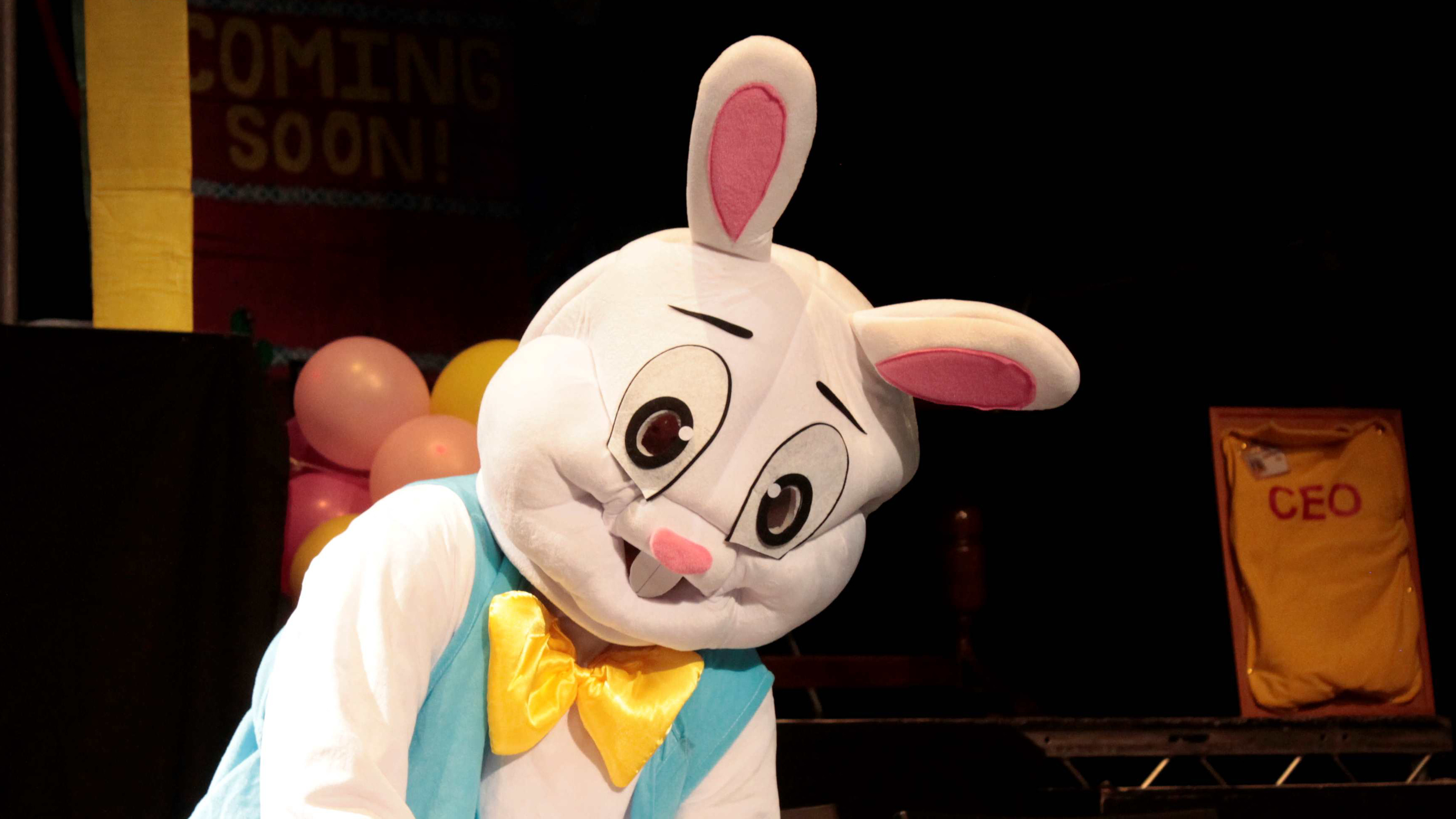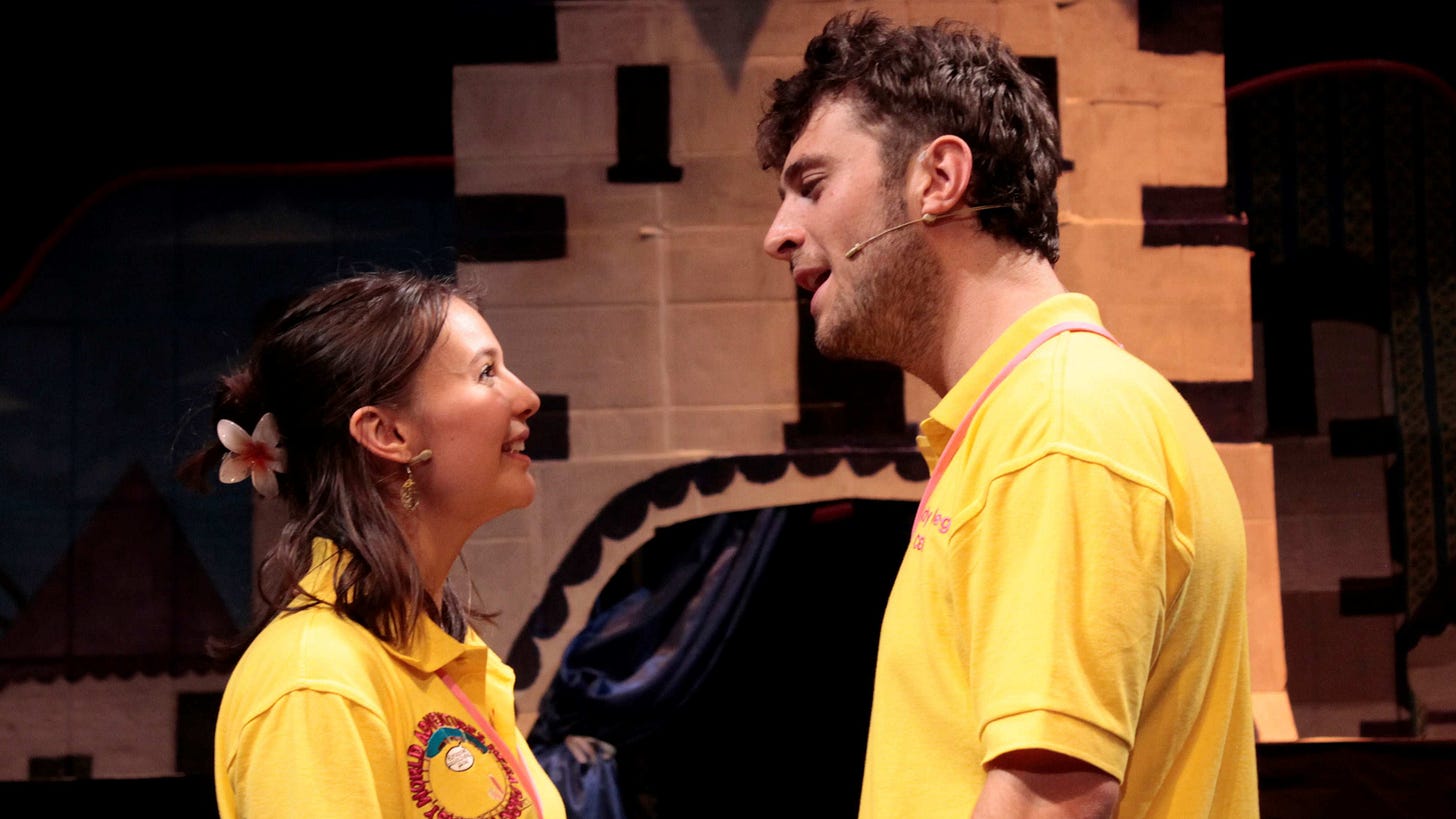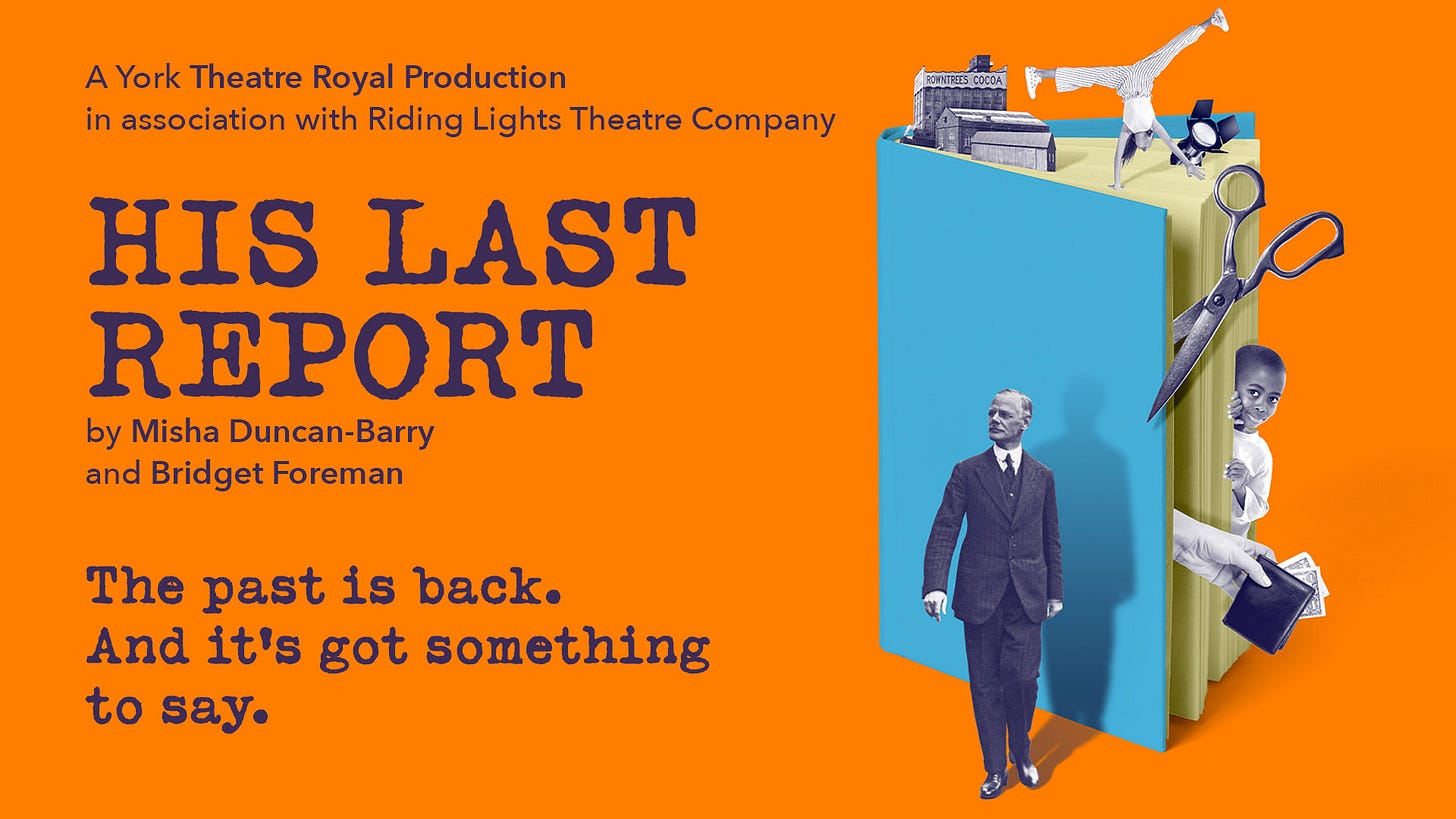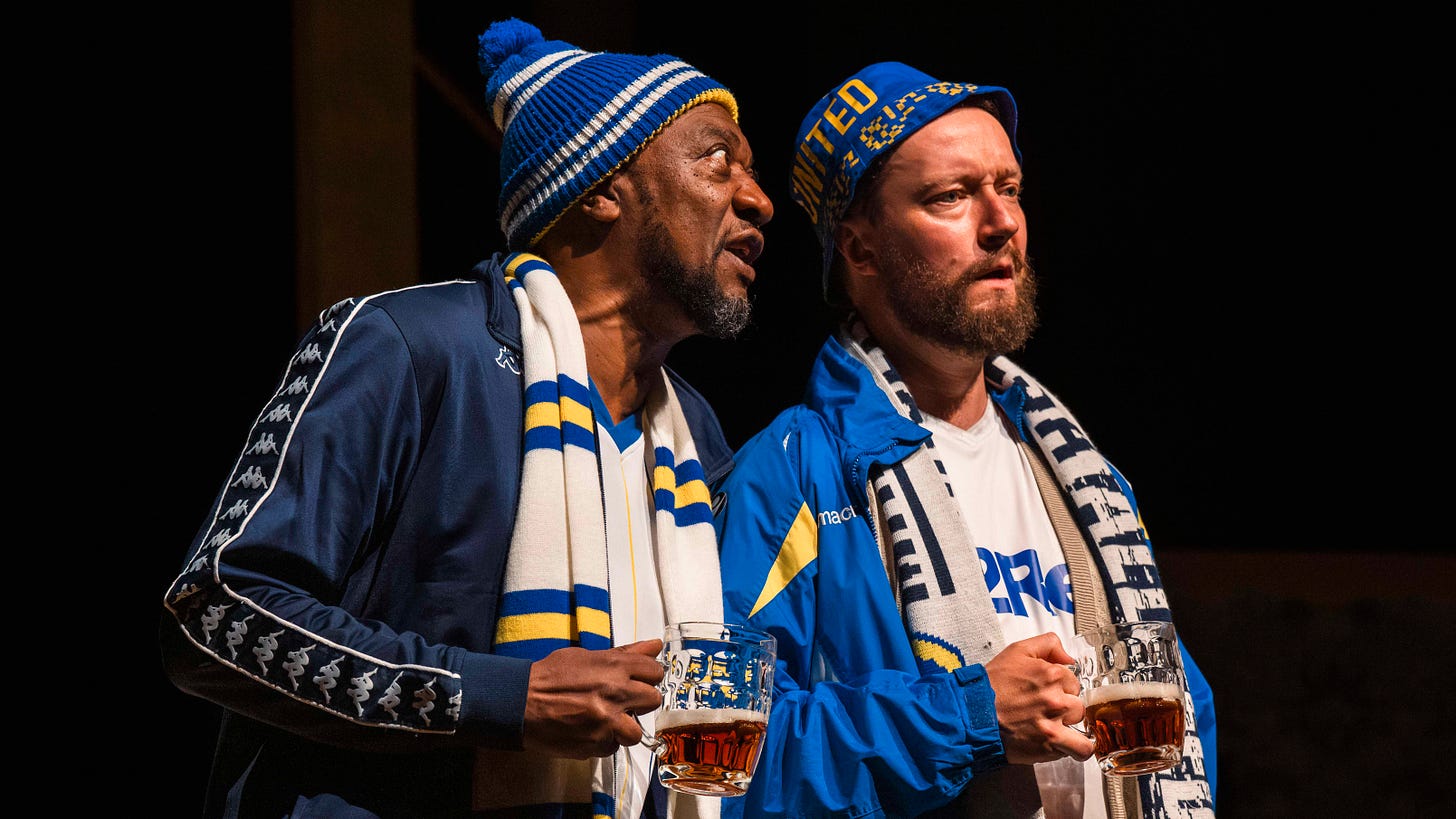Does Talent Even Matter?
Liz Ryan takes a deep dive into the well-springs of theatrical creativity. Plus: What's On Jul 12-18 and beyond
I have unfinished emotional business with amusement parks. As a child, on the way to the beach, I was manoevred around Barry Island’s large and cacaphonous Pleasure Park as though it wasn’t there. “What amusement park?” was my mother’s line of defence, as the pop music blared and the Super Waltzer whirled overhead.
In this regard, she had perfected gas-lighting her children before gas-lighting was even a thing.
But sometimes there was a glitch in this carefully constructed parental matrix. On an outing to another of these seductive bad influences with my uncle’s family I witnessed an injury to one of the workers. A little girl ran over him as he tried to mend a go-kart on the trackside. When she realised what she’d done, she was so frightened she leapt out of her own kart and ran in blind terror across the track to her parents, barely escaping a second serious accident. Looking back, through adult eyes, for such a scenario to play out in front of visitors the health-and-safety culture must have been non-existent.
And so to Leeds on the hottest day of the year to watch a musical set in one of these death traps. I’ve reviewed some big names recently — film star Gary Oldman at York Theatre Royal, Matthew Bourne’s stellar New Adventures dance company. But Fantasy World Aventures Mega Park at stage@leeds, a black-box theatre on the University of Leeds campus, was created by unknowns — writer-director Abbie Freeston and composer Matthew Stanley, both University of Leeds alumni.
Why risk heat exhaustion to see a self-funded show with cardboard scenary?Because, as well as being fascinated by the seediness of such places, I’m interested in what might termed Yorkshire’s theatre ecology. What shows get made, and where, and how, and why.
I know that modern amusement parks are professional outfits that put public safety at the heart of everything they do. But nevertheless, I approached this task with a certain amount of, let us say, ‘Jungian shadow work’ that still needed to be done on my relationship with them.
But writer-director Abbie Freeston, who was clearly born under a sunnier emotional sky than me, grasped her subject matter with no such trauma. She created a piece that was pure fun and silliness, short on life-changing injury but long on the tacky allure of popular entertainment. For a few, brief, hours it made me want to go to Alton Towers and queue for the biggest, scariest ride.
How did they find the money to stage a full-scale musical? I asked her friend Savannah Perry who co-produced the show. Answer: They held fundraising socials featuring arcade games. They got practical assistance from the venue. They built and painted their own scenery. And the cast and crew were drawn from Leeds’ rich strata of professionally trained actors, semi-professionals and keen hobbyists. “One of our cast is a dentist.”
Leeds is a medium-sized industrial city but it has five universities. It’s possible to study for a theatre or performance-related degree at four of them. The University of Leeds alone has at least three meaningful performance spaces — stage@leeds, the Riley Smith Theatre and the Workshop Theatre. Combined with the graduate output of Leeds Beckett, the Arts University, and the Conservatoire it’s possible to plug into a dense network of trained performing and performance-related talent and maybe blag yourself a small venue for free.
Compare that with, say, Rotherham — a town of 100,000 people with just a smattering of theatre infrastructure.
Since the 1990s Leeds University’s School of Performance and Cultural Industries has given rise to a slew of innovative companies and performers, from Unlimited Theatre to Paper Birds. Despite my keenness to discover what was going on now, that evening I approached stage@leeds feeling dispirited in the intense, humid heat. I was exhausted after a fruitless traipse round Leeds’s supposedly upmarket shopping centre in search of that perfect black T-shirt. And the passage of time brings its own melancholy.
Yet once on campus I was comforted by familiarity. Even though I studied in a different city, it was all so like my own undergraduate experience. Leeds is a Russell Group university — that is, in the UK’s top tier. Prime Minister Keir Starmer did his law degree at Leeds; Lord of the Rings writer JRR Tolkein spent the early part of his academic career in the English Department. Home Counties accents abounded and even particular individuals — the tall blonde in the barely-there slip dress looking as if she walked for a Paris fashion house; the rugger-buggers blocking the pathway as they loudly discussed the comparative shapes and sizes of their foreskins with perfect indifference to the people around them — these character types were recognisable from my own student days. Whilst the news is bleak, and nobody in the UK seems to have much faith in the future, what surrounded me on the grass around the refectory on a warm summer evening was a reminder — with the exception of the obligatory miserable-looking transman — that in swathes of England nothing much has changed.
Stage@Leeds was tucked behind the Student Union where years ago I went to gigs. (Leeds Uni was always a cool venue — this is where The Who recorded their legendary album Live at Leeds.) And the production was of a sort that always gladdens my heart. A hey-guys-let’s-put-on-the-show-right-here occasion when every single audience member seems to be a friend or relative of the cast. Just for an evening we weren’t rotting on our phones. We were gathered together in a single space to dance and sing, laugh and cry. And that, right there, is the magic of theatre.
It was evident from the start that the audience held a lot of love for Fantasy World Adventures Mega Park! And deservedly so. Freeston’s book and lyrics were commendably tight, the witty songs pushed the story along, the choreography was sophisticated; and Matthew Stanley’s catchy tunes switched from major into a minor key at all the right points. It was naughty, funny and a bit sweary. I drank in the happy pheromones.
This light-hearted tone was a conscious choice by Freeston, who has previously tackled more downbeat subjects. She thinks the British public wants to be cheered up. The plot concerns a young man who, following his father’s death, inherits an amusement park that is more 1970s accident farm than 21st-century Disney. It’s an inheritance that doesn’t interest him; what he really wants is to step into the furry costume of the park’s famous bunny mascot. Meanwhile the girl he loves is trapped in a peripheral job in the entertainment section when she’s perfectly qualified to design, build and manage the rides.
There’s a resolution, of course. This is a comedy. Everyone gets what they want in the end, and the negligent grown-ups are put in their place.
I was filled with awe. How the hell did she do it? How did Freeston and her friends successfully create a full-length piece of original musical theatre with almost no budget?
Professional training helps, of course, and the dense network of resources previously alluded to. But in the end there is such a thing as talent. Talent calls to talent — they are a talented group of people. (Well, maybe the energetic chorus line was an amusing hodge-podge of ages and body shapes, but they made up for it with their infectious joy.)
Yet film director Woody Allen once said: “Eighty per cent of success is showing up.”
And so much of talent is having the courage to get on with it.
“Try again. Fail again. Fail better,” as Samuel Beckett wrote.
But Freeston did not fail. At the end I was swept up in the rapturous standing ovation. The piece worked not because it was perfect but because it had the confidence to parade its imperfections as part of the joke.
But that is not to say, on reflection, that I found this candyfloss confection wholly satisfying. There is a heart of darkness concealed within every truly great musical. And real theme parks — the tatty, badly managed, old-fashioned seaside variety — are, or at least were, places with a shadow side. I have not even mentioned the time when my Dad, who won a cup for his marksmanship in the British Army, was cheated out of a tawdry prize (I think it was a rip-off Womble, or something similar) by the scumbag running a rigged shooting gallery. Or the friend of my brother’s who spent a summer operating the Ghost Train at a notorious South Coast outfit in the 1980s and emerged to say grimly: “Amusement parks are places where people punch other people their abortions.”
Yes, that low. And the eight-year-old in me is still furious about not getting the Womble.
There is darkness in Mega Park! if you dig for it. There are jokey vignettes hinting at the sleazy behaviour of staff members and the ever-present threat of paedophiles congregating in the places children find attractive.
Teddy’s father, who previously ran the park, came to an unlikely but largely unspecified end. Teddy, clearly, has issues to do with his father. It’s a coming-of-age story. A hero’s journey.
I think the humour could have been more extravagently tasteless here — the number of wacky but horrific deaths it is possible to imagine in the setting approaches infinity, from being whirled off the Whirlizer to being turned into popcorn. And with the added perspective of age, I find the ending Freeston fashioned for Teddy short-changed not just the character but also the audience — and storytelling in general. The result, ultimately was unsatisfying for anyone looking for deeper messages. (Which to be fair, most of the audience wasn’t but this theatre critic feels she has to justify her role.)
I get it. We are all existentialists in our youth. Only as we get older do we realise the inheritance we are handed at birth isn’t so easy to shake off. Sophocles got it right in Oedipus Rex. Even as we flee from our destiny we bang right into it.
As someone who once studied for a management qualification (the IoD diploma, if you’re interested) at nearby Leeds Beckett, I will say with some confidence that Teddy’s absent father had an authoritarian leadership style. This is implicit in the script, as is the need for Teddy to find his own way and to treat the women around him better. There’s an obvious baddie — the Mystery Mascot who makes unscheduled appearances at the park to perpetrate a Scoobie Doo-standard crime caper. But the second half would have been dramatically stronger if the plot line about Teddy’s need to reject his father’s toxic masculinity, and discover his own path to leadership, had been clarified as the central conflict beneath the froth.
And it would have made more sense of the bunny mascot theme if the script had the courage to go deeper into that place where ‘furry’ is a fetish, and fetish (according to psychiatrist and psychotherapist Dr Az Hakeem) is a consequence of childhood trauma.
So whilst I’m happy in the final scenes to see the various female characters get the fates and roles they deserve, it’s Teddy (played with some revealing inner life by Henry Marshall) who is the one with the interesting psychology. He is a Hamlet in bunny ears, struggling amongst all that Female Empowerment (a decades-old cry now, yawn) to find a dignified place in a world that will no longer crown him just because he is male.
And doesn’t that uncannily mirror the psychological troubles so many young men are experiencing at the moment?
Freeston’s script assumes, rather than demonstrates, that it is conventional gender roles that are doing the damage. Teddy’s apotheosis arrives when he rejects his mother’s expectations, which is fine, but unless he ultimately renounces the bunny suit he’s going to look a bit wet.
Freeston might say that’s the point. He isn’t wet, he’s embracing a different set of values. I say — well, hang on. It isn’t that simple. Once you notice the wall of verbal abuse directed at men by feminist discourse, it’s hard to unsee it. And the Teddies of this world aren’t doing so well at the moment. There’s a crisis of masculinity and I’m not sure conventional gender roles are the cause.
Because — whisper this shocking thought quietly — it could be that gender roles are hard-wired — and we repress them at our peril. I don’t think you can write a hero’s journey and have the hero at the end of it still somewhat bunny adjacent. He needs to be centre-stage, master of his destiny and running the park on his own terms, with values and behaviours different from his father’s.
Like Prince Hal he must put away his childish things and turn himself into King Henry V.
Or, in 21st-century management-speak, he must reinvent himself as transformative leader, one who empowers his loyal staff members rather than tearing them down.
The plot is basically there; it’s as though the unconscious writer sees clearly, but the conscious one prefers conventional pieties to uncomfortable truths.
So Freeston has written the musical she wanted to write, and it’s great — she is defiant in the values she wishes to project. I’m sure it’ll be a success at the Edinburgh Festival, where she hopes ultimately to take it. But whether it has the chops — whilst defying that basic storyline law-of-gravity — to survive unaided outside the febrile atmosphere of what is basically an international trade show for progressive theatre people, is another story.
This short run at Leeds was only a preview, and there’s a chance here that isn’t fully being grasped. Fantasy World Adventures Mega Park! — without any loss to its tremendous fizz and humour — is a few, small, revisions away from being a deeper piece about remaking manhood. Or, indeed, about simply growing up.
No future performances are listed at the moment but I will keep you informed.
What’s Coming Up…
“As temperatures rise, please remember that our Victorian theatres do not have air conditioning. We encourage you to dress comfortably for the heat.”
Fair play to Leeds Heritage Theatres for telling it how it is. As the pace of life slows for summer, and the heatwave tightens its grip, not every auditorium has the facilities to cope with spiking temperatures. Quite why the supremely affluent financial and legal centre that is Leeds cannot afford to renovate its unique, Grade II listed, neo-Gothic and Romanesque theatre stock or fund its ballet orchestra properly is a question for another day. But out of kindness towards my readers’ physical wellbeing — I do not want aneurysms on my conscience — I’ve weighted the following selections towards modern venues and outdoor locations. But fear not, we’re promised cooler weather at the end of the month.
The big opening this week, and available all summer long, is Mike Kenny’s adaptation of E. Nesbitt’s classic novel The Railway Children. This legendary show — which in its most extravagant manifestations features a real steam engine — was first staged at the National Railway Museum in York under the auspices of the Theatre Royal in 2008. It later moved to London’s Waterloo Station where it was an equally big hit. There have also been performances in India and Toronto, Canada.
Now it’s Keighley’s turn, as part of the Bradford 2025 City of Culture Festival. Original director Damian Cruden returns with a new version which has been created in association with Stand Up & Be Counted Theatre, Britain’s first “theatre company of sanctuary”. This, though scarcely a perversion of what is already a highly political text about freedom, makes my heart sink. But hopefully, as working Britain buckles beneath the cost of housing ever larger numbers of illegal migrants, the moralising won’t be too cloth-eared. And even if it is, the totality of the day out — the adventure begins as you board a steam train at Keighley for a ride along the beautiful Keighley & Worth Valley railway to the performance site at Oxenhope — will probably make up for being told you’re a bad person for thinking what you think. Keighley Station, Jul 15-Sep 7, tickets £15-£55.
Looking Ahead…
Not the least of the benefits of York Theatre Royal’s £6m redevelopment in 2016 was the installation of air conditioning into one of the oldest theatre buildings in the country. (This almost makes up for the raked seating in the Stalls which destroys the original ‘Georgian chocolate box’ atmosphere of the Main House and which I have never really warmed to.)
York Theatre Royal, which could have settled for so much less, has always struck me as a model of community engagement. His Last Report tells the story of York resident Seebohm Rowntree, whose devout Quaker ancestors founded the chocolate factory that still exists on the edge of the city today. The Rowntrees were social welfare pioneers and Seebolm Rowntree’s York-based research into poverty contributed to the founding of the British welfare state — albeit with the mixed results we see today. The cast features two professional actors, Antony Jardine and Amelia Donkor, alongside a community ensemble of over 100 local people. Is it fanciful of me to imagine that some of these may even be the descendants of those who featured in the original studies? Jul 19-Aug 3, £15-£35, Jul 19 pay what you can.
Last Chance…
A weighty responsibility lies with whoever writes a football drama. Bankers they may be, from the theatre’s point of view, as the seats fill up with people who have never seen the inside of the building before. But, if football fans are to be turned into theatregoers, the play must be good. And, in the case of football dramas, that’s a tall order. The on-field action is regularly more incredible than anything a writer can come up with. And sport has the added advantage that the outcome is genuinely open-ended. Dramatists are stuck with what happened, and unfortunately for them, your averagely obsessed football fan knows exactly what happened and has the data points to prove it.
Chris O’Connor, who wrote Through It All Together about United’s renaissance under Marcelo Bielsa, laboured under the additional disadvantage of following in the footsteps of another Leeds writer, David Peace. To my knowledge (I’m happy to be corrected), Peace wrote the only great English football novel — The Damned United, a fictionalised account of manager Brian Clough’s brief but disastrous tenure at the club in the 1970s.
Clough’s family, it is said, were unhappy about the swearing. But as an artistic decision, it was sound. In The Damned United, Peace captures a quality about Leeds United in the Don Revie era (and much, much later — working for PA Sport, I could a tale unfold) which every other football supporter understands but which Leeds fans themselves are unlikely to accept — ‘Dirty Leeds’, the club’s characteristic nasty edge, brutal and thuggish under pressure.
Technically, I’m in the Leeds United recruitment area. One famous Leeds United captain even lived in his gated mansion on the edge of the village. He was occasionally to be spotted jogging round the village’s tatty recreation area in an expensive-looking track suit. But I have a confession: LFC got to my heart first. I couldn’t have been more than six years old but, growing up on the Wirral, you had to have an angle on these things.
I am the flakiest Liverpool fan alive. I’ve never been been to an Anfield match, don’t want to, and only ever turn up digitally for the huge occasions. But that doesn’t mean it’s not real. It is. And deep in my heart, I will never warm to Dirty Leeds or to any play about them that is less than an evisceration. This is unfair, because the reviews are telling me that O’Connor, along with director Gitika Buttoo and cast members including Reece Dinsdale, Shobna Gulati and Everal A Walsh, are making a good fist of an uninspiring genre, with an added subplot about dementia thrown in. Leeds Playhouse, to Jul 19, £15-£35.
The Exclusive Bit…
Early booking advised for a show that’s smashing it in the West End and on Broadway. To find out which one, become a paid subscriber.








